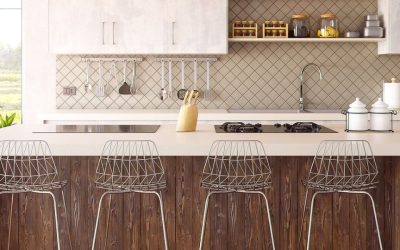Whether you’re designing a commercial property or a private residence, making the most of your space is essential. Surprisingly, small details like your choice of furniture, door styles, and even wall colours can influence how spacious your property feels.
Two of the most popular options are sliding doors and swinging doors, each offering its own advantages depending on your layout and lifestyle. Sliding doors, for instance, have become increasingly popular in compact spaces due to their space-saving design and ease of maintenance.
They are also easy to repair and replace. Whether you need sliding door repair in Wellingborough, Northampton, or elsewhere in the UK, it’s easy to get in touch with a professional who can help. Besides, it’s much easier to fix a sliding door than a big oak door, which may require special tools.
Swinging and sliding doors both have advantages, making it difficult to choose. Today’s blog will help make things slightly clearer for you with a detailed discussion of the pros and cons of both.
Swing Doors
A swing door operates by swinging in both directions on a hinge or a pivot rather than sliding. These doors are comparatively more commonly used for commercial spaces and can be easily repaired.
If you own or manage a commercial space, it’s best to keep some tools handy. For example, keep stock of basics like chisels and Allen wrenches. You can also shop for wholesale free swinging hinges and other essentials like pliers.
Here are some of the benefits of using a swing door:
The Benefit of Swing Door
- Swinging doors are one of the most secure types of doors, making them a preferred choice for front doors.
- These doors offer better sealing, preventing drafts, which has a direct impact on your EPC rating, energy bills and the indoor environment,
- Unlike sliding doors, swing doors open completely on their hinges, allowing a wider access path. This makes them a popular choice for businesses.
- Swinging doors can be easily customised, allowing owners to create a versatile appearance for their properties.
Drawbacks of Swing Doors
- Swing doors often need more space than sliding doors, making them an impractical choice for smaller spaces.
- They can obstruct high-traffic areas such as a store or lobby, leading to injuries and slips.
- The hinges can easily wear out and need regular maintenance and replacement.
When Should You Choose Swing Doors
- You prefer a classic aesthetics.
- You have ample space for opening and closing the door.
- You need added security and want to weather-proof the room.
- You need a wider door access.
Sliding Doors
A sliding door operates horizontally on a track system and usually works parallel to the wall, helping to save space and offer security in smaller areas. They are made from composite materials, glasses and aluminium. Sliding doors usually work on a wheel and rivet mechanism, making them easier to operate.
Let’s look at the advantages of sliding doors:
Advantages of Sliding Doors
- These doors are a great option for compact spaces, as they don’t take up any extra space.
- They are a great addition to minimalist and contemporary interior designs.
- Sliding doors usually have glass or fibre panes, allowing natural light to enter, creating the illusion of a larger space.
- These doors are easily operable, even for people with mobility issues and can be automated for further convenience.
Disadvantages of Sliding Doors
- If the sliding door faces a garden, there is a higher chance of dirt and debris getting stuck into the tracks. This can hamper movement and may require regular cleaning.
- When sliding door panels are opened, they typically overlap, and the actual operational width is less than that of swing doors.
- Sliding doors are more vulnerable to security concerns than swing doors.
When Should You Choose Sliding Doors
- You have limited interior space and need to maximise the usable area.
- You like modern aesthetics.
- You need a door with ease of accessibility.
Final Words
Both swing and sliding doors are being used in tandem across properties in the UK. Many people choose to go with swing doors as front doors for their property as it is more secure and insulation-proof.
Sliding doors are preferred for internal connections and as back or patio doors. They allow for more natural light and don’t take up extra floor space. Care homes and hospitals often use automated sliding doors as they allow for ease of accessibility and prevent accidents by tripping or bumping into the door.
When it comes to choosing a door for your property, it’s always best to assess your exact needs and making the choice accordingly.
Which door are you installing for your property?
- Sliding Door vs. Swinging Door: What Is the Better Option? - March 25, 2025
- Leeds Defies London: The Unexpected UK House Price Growth Champion - March 21, 2025
- How to Recession-proof Your Finances - March 21, 2025


